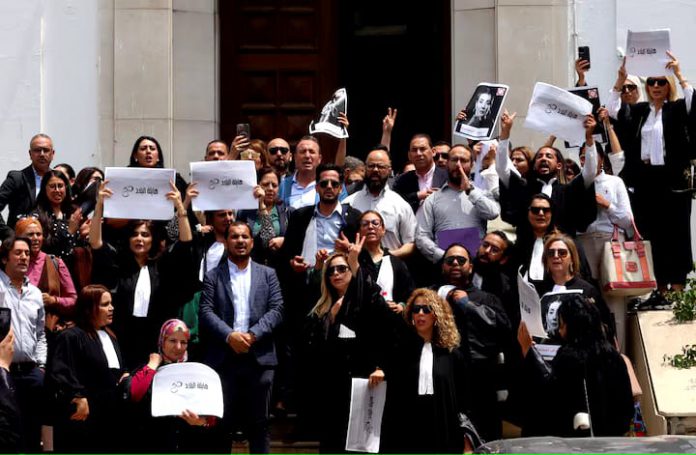A Tunisian Court has sentenced a prominent lawyer Sonia Dahmani to one year in prison.
Dahmani’s legal representative Sami Ben Ghazi told journalists over the weekend that the Tunisian lawyer known for her criticism of President Kais Saied policies.
The court ruling reinforces opposition concerns that critical voices will continue to be targeted ahead of a presidential election on Oct. 6
“The one-year prison sentence is unjust and confirms the targeting of free speech,” Dahmani’s lawyer Sami Ben Ghazi told Reuters.
Dahmani was arrested in May after appearing on a television program in which she said Tunisia is a country where life is not pleasant.
Opposition parties, many of whose leaders are in prison, have accused Saied’s government of exerting pressure on the judiciary to target his election rivals.
They say fair and credible elections cannot be held unless imprisoned politicians are released and the media is allowed to operate without pressure from the government.
Lotfi Mraihi, leader of the opposition Republican Union Party, who has announced his intention to run in the presidential election, was arrested on Wednesday on suspicion of money laundering.
Abir Moussi, the leader of the Free Constitutional Party and a prominent candidate, has been in prison since October 2023 on charges of harming public security.
Some potential candidates, including Safi Saeed, Mondher Znaidi, Nizar Chaari and Abd Ellatif Mekki, are facing prosecution for alleged crimes such as fraud and money laundering.
Rached Ghannouchi, a fierce critic of Saied and head of the Ennahda main opposition party, was jailed last year on charges of incitement against police and plotting against state security.
Saied, a retired law professor who was elected president in 2019, has not officially announced his candidacy to stand for a second term. Last year he said he would not hand power to what he called non-patriots.
In 2021, Saied dissolved parliament and began ruling by decree in a move that the opposition described as a coup.
Saied said his steps were legal and necessary to end years of rampant corruption among the political elite.











